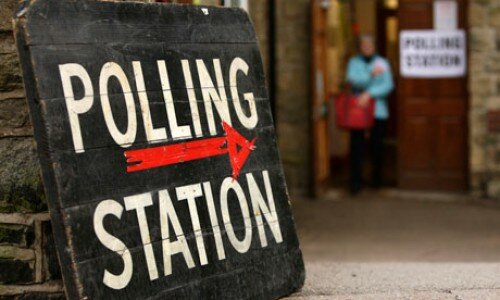
Public mood swings behind localism in boost to town hall power plea
Support for devolving power and budgets from Westminster to the regions is growing as the localism campaign begins to resonate with voters, a major study has concluded.
Almost half of respondents to a YouGov survey (46%) agreed that ministers should have less power over local services, including hospitals and policing, and that local government should have more power.
A similar proportion believes the public should be able to directly elect officials to run public services.
Where devolution is clearly visible – such as in police and crime commissioners in England and the responsibilities of the Assemblies in Scotland, Wales and Northern Ireland – there is a greater willingness to accept that responsibility for local performance can be laid at the door of locally-accountable bodies.
However, the supporters of devolution have been given a clear warning that the public is likely to hold local bodies responsible if things go wrong.
The survey, commissioned by PwC, shows that while most people still hold the UK government accountable for public services when they deteriorate nationally, devolved governments are attracting increasing credit and blame in their areas of responsibility.
The new research – ? – looks at public attitudes towards decentralisation of core public services and the appetite for less centralised control of public services.
The study examined respondents’ views across England, Scotland, Wales and Northern Ireland about who they would hold accountable if public services deteriorated in their local area, in the wider region and also across the UK as a whole. Scenarios in health and care, education, policing, transport, housing and waste collection services were considered.
The survey found that the public distinguish responsibility for services and the economy at different levels.
On the economy, improvements locally are credited by respondents mostly to local businesses (38%) and local people (25%), whereas UK wide economic improvements are mostly credited to the UK government (38%).
The report concludes that when lines of accountability are unclear, where division of power is murky and the public does not know who is in charge the public reverts to holding the government in Westminster responsible for the performance of public services.
Education in particular stood out in the survey as such an example, where the findings point to a perception of a more direct relationship between central government and academies or free schools, outside of local council control.
Only in services where very visible agencies or people take control, with high degrees of transparency and accountability, such as the Mayor of London in transport, is the heat taken off central government.
Overall, the research suggests that while the public will not be a brake on further reforms, the jury is still out on a number of elements of the decentralisation debate, including:
- The case for directly elected mayors, although Londoners remain the most confident with only 23% against having an elected mayor.
- Local councils’ capacity to make use of new powers, or independent bodies’ appropriateness to make long term decisions, for example, on infrastructure.
- Worries about postcode lotteries persist. 80% of survey respondents agree that everyone should be able to access the same public services, no matter where they live, with 75% agreeing that councils should be free to prioritise as long as they meet central government mandated national standards.
- Over half of the public in the survey believe public services would be delivered more effectively if they are free from political pressures (53%). In contrast, ministers have set up a number of independent organisations to run public services.
- Almost two thirds (65%) of respondents said if services such as in health and care, education, transport or housing deteriorate or go wrong, ministers are still ultimately responsible.
- Despite a low turnout for the election of the first Police and Crime Commissioners in Wales and England, the survey shows they now appear to be recognised by the highest proportion of survey respondents (37%) as having accountability for crime in their local areas.
Stephanie Hyde, head of regions at PwC, said: “Decentralisation is critical to the UK’s economic rebalancing and building sustainable growth across the regions. It is at its most effective when there are clear lines of responsibility, delivery and accountability.
“The results of this survey say less about the public appetite for a blame game and more about our need to raise the profile of who’s responsible and accountable, and for what.”
Similar Articles
The Engine is becoming well-tuned 1
It would have been unthinkable just 18 months ago to have experienced an event where
Dripping-fried chips help make West Midlands world-class kids’ holiday spot 2
Young people today. What can you do with them? While it might be supposed kids would be
Local government austerity biggest challenge to culture, warns Arts Council chair 4
The Arts Council has said it is determined to work with hard-pressed local councils to
Candidates for police commissioner line up, but Lib Dems give it a miss 4
The Liberal Democrats have decided not to run a candidate at the election for West
Chuggers to face tough restrictions in Birmingham city centre 2
The activities of face to face charity fundraisers, known as 'chuggers', are set to be










